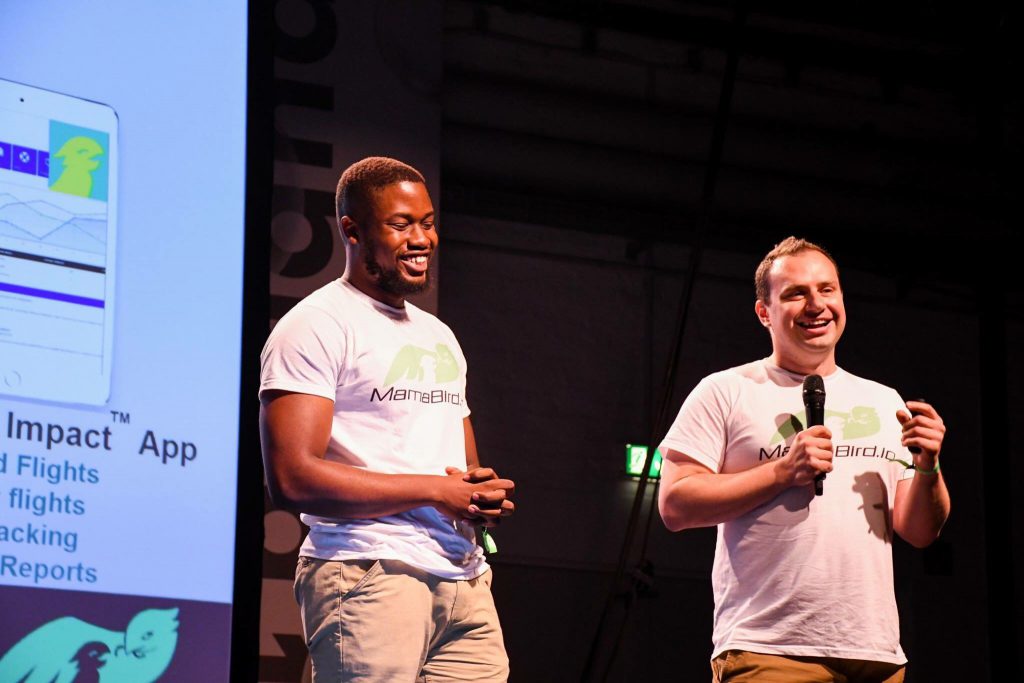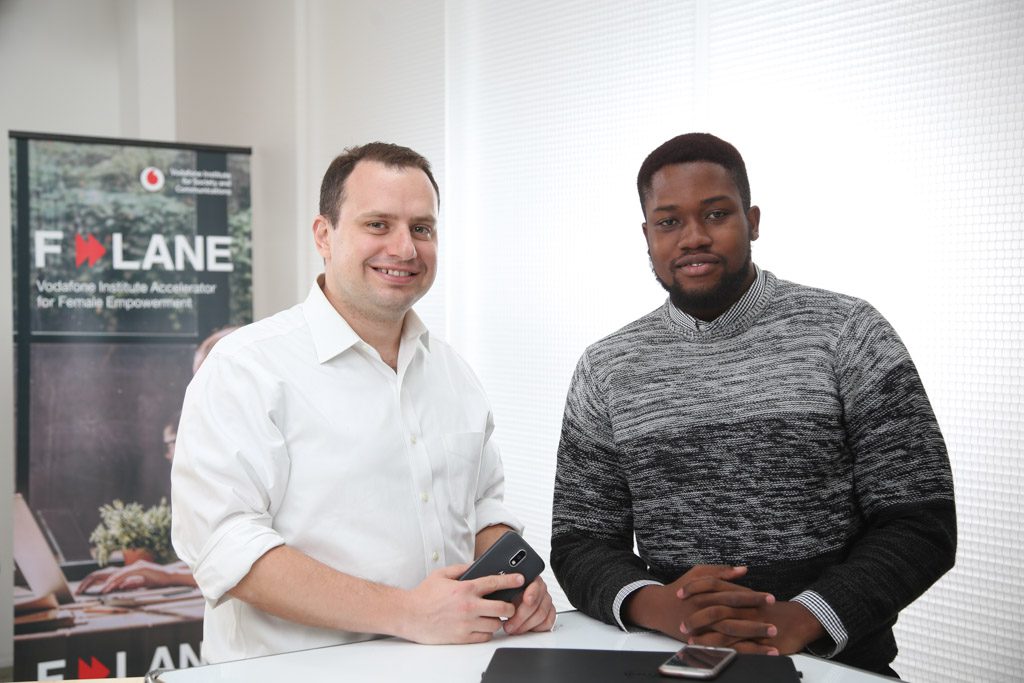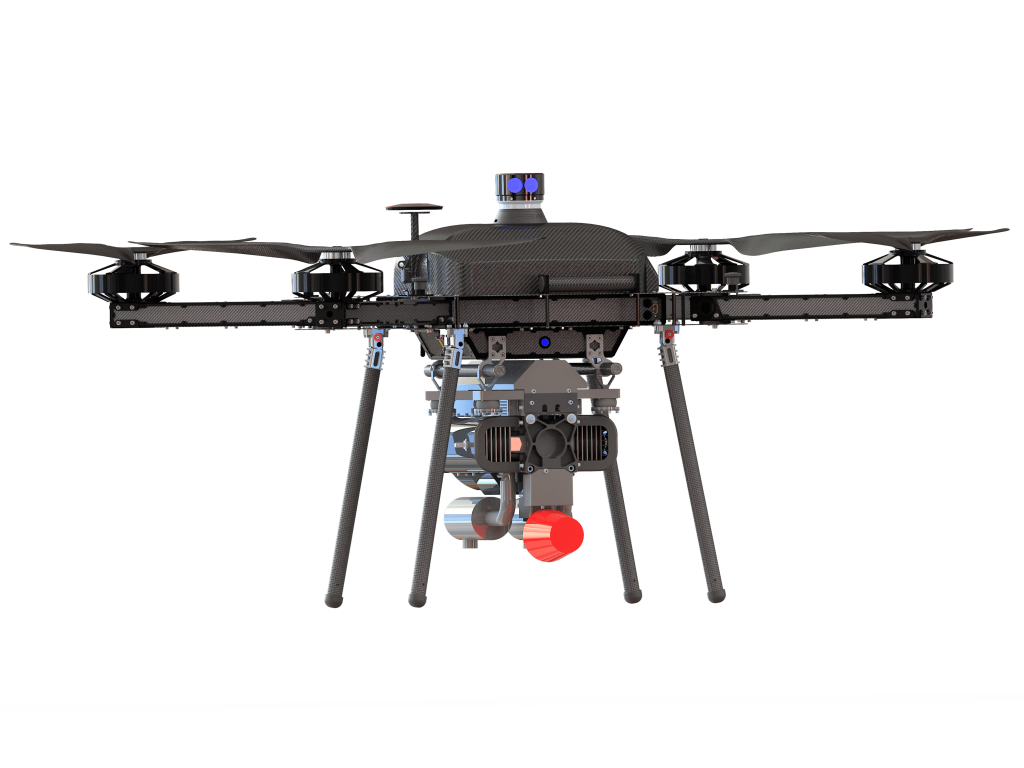MaMabird: Dorones For Good
Meet Mamabird, the startup flying life-saving supplies to mothers and children in Malawi’s remote villages.
By Rute Costa
The birth of a life-changing idea
Thomas and Eugene met online. From faraway corners of the globe, they were brought together by a shared passion: drones. Thomas has a software and hardware design company in Washington DC, and Eugene runs a drone mapping business in Malawi. Their joint experience and expertise makes Mamabird, a startup using “drones for good”.

We are on Skype, the three of us, just like Thomas and Eugene were when they first developed the innovative concept for Mamabird. After having submitted a joint proposal for a Unicef drone project that was not accepted, they carried on collaborating. When they heard Unicef was opening a drone testing corridor in Malawi, the business partners got to work. “We were bouncing ideas off each other”, says Thomas, “we knew we wanted to do something with drones, but we figured there are a lot of companies that already do cargo, so we’d have to find something special”.
That’s when Eugene’s field knowledge came in handy. He recognised the need, particularly in remote areas, of delivering healthcare supplies and assistance to mothers and children. “There is a lot of inequality especially in the health space”, Eugene explains. “Women are usually the ones that are most vulnerable, during the time they’re giving birth and when the young ones are in their first 1,000 days”. Remote areas are difficult to access with trucks and motorcycles driving through dirt roads. Drones could cut the costs and deliver necessary life-saving supplies more efficiently. After running the idea through people with experience in humanitarian aid in developing countries, they realised the potential of focusing their efforts on women and children’s healthcare, so often unaddressed.
“There is a lot of inequality especially in the health space. Women are usually the ones that are most vulnerable, during the time they’re giving birth and when the young ones are in their first 1,000 days.”
Initially, Thomas and Eugene thought of addressing malnutrition by flying out nutritious foods to those in need. But soon they realised the huge potential of drones to to carry more life-saving and life-changing supplies. “We got introduced to this complete birth kit that costs about five dollars, has all the necessary supplies to perform a clean, sanitary birth in the most remote parts of the world, and that allows both the mother and the child a chance to survive”, Eugene tells me. Because the product is light and low-cost, it would be easy to transport in abundant quantities. This is their first focus.

But it doesn’t stop here. “What we’re trying to do is not just have this one time the drone drops off one item, then that’s it. Now that the kids are there we have a responsibility to follow through and buy these other supplies that the child is going to need”, says Thomas. They intend to accompany the mother’s pregnancy, through delivering vitamins and supplements that prevent growth stunting – “20 to 30% happens when the child is in the womb”, Eugene explains; all the way to the birth of the child, with sanitary birth kits; and the baby’s growth, with sleeping cardboard boxes equipped with mosquito nets, nutrition supplies, vaccines, medication and even glasses for kids with vision impairments.
Getting ready to fly “good”
“How will it work?”, I ask out of curiosity. Eugene tells me they plan to spot areas and people in need through local villages’ health-centres. They also aim to study the demographics with the highest health risks and target those, following each user through their growth and development by addressing their healthcare needs.
At the moment, Eugene and Thomas are preparing to build two prototypes and spend two to three months testing in the drone corridor in Malawi. In order to do this, they will need to raise $100,000. In four years, they aim to be performing over 100,000 flights, with 100 drones, covering 90% of Malawi. “If we can reach that milestone, we will be very happy […] we can address a lot of problems with stunting in Malawi”.
The plan is to expand even further. “We’re trying to scale across multiple countries in Africa: start with Malawi and then we’ll target the more drone-friendly countries across Africa. Some countries are skeptical about drones, or just worried because of security and privacy issues. But we’re opening up by demonstrating that these drones are drones for good. Other countries will also see a benefit and open their doors”, Thomas explains.

Advice from experienced entrepreneurial flyers
Mamabird is Thomas and Eugene’s first venture together, but neither of them are newbies to starting up their businesses. “Any advice to young entrepreneurs?”, I ask, searching for pearls of wisdom. “Honestly I think the most important is ‘just get started’. Sometimes people get the fear, they think they’ll be uncomfortable, they won’t have income from the start. Again, you just have to get started, you’re not gonna get anything done if you don’t”, says Thomas.
Plans are also hugely important. Thomas explains: “One of my mistakes was thinking at first that because with a startup the plan will change, there’s no point in having one. That’s kind of a fallacy. It’s good to have a plan, and to know the different milestones you want to get to, what your goal is. But be aware that things are going to change dramatically along the way. If you have that in mind, then it’s ok to have a plan and to change it. If there is no plan, there’s no plan that you can change”.
Eugene adds that even with the lack of initial income, and the “tough days”, you should “just follow your passion and the rest will fall into place”. “The ideas come easier when it’s something you’re passionate about. If we really weren’t into this, using drones for good, we would probably have given up by now, you know?”, he adds.
“The ideas come easier when it’s something you’re passionate about.”
Lastly, I ask them what the best thing is about running their own venture. “Being able to do what you want to do in your own time, in your own terms”, Thomas tells me. It all boils down to passion: “That’s what we like about what we’re doing, is that we can work on things that have a meaningful impact for us.”
Mamabird is lifting off, for good. Follow their project for updates.
Photo credit: MamaBird
